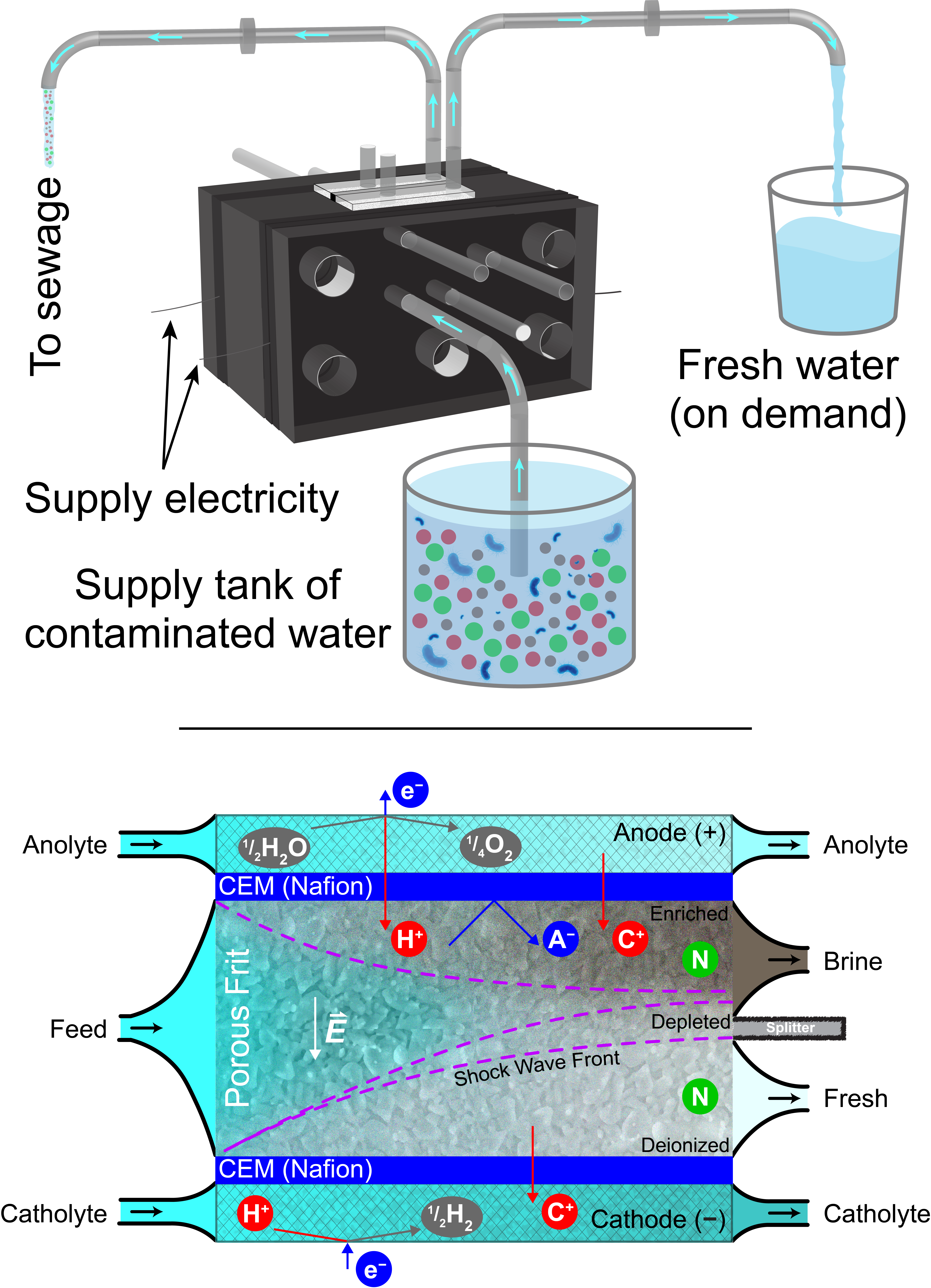(702a) Continuous Separation of Ions and Particles from Water By Shock Electrodialysis
AIChE Annual Meeting
2020
2020 Virtual AIChE Annual Meeting
Environmental Division
Advanced Treatment for Water: Reuse and Recycling I
Friday, November 20, 2020 - 8:00am to 8:15am
Shock electrodialysis is an emerging technology for water treatment based on splitting fluid streams on either side of a deionization shock wave propagating through a charged porous medium at overlimiting current. This talk will introduce the basic physics and design principles of shock electrodialysis and will demonstrate possible applications in water remediation. When the feed is dilute, shock electrodialysis can be used for deionization (>99%) with high (>85%) water recovery, which we demonstrated by removing ions of cobalt and cesium from model radioactive water. We also observed high (>90x) selectivity for multivalent ions by the continuous removal of magnesium (Mg2+) from a dilute solution of sodium chloride as well as from artificial seawater. Selectivity for toxic heavy metals (which are often multivalent) at low salinity guarantees an ultra-low cost of electrical energy (~$0.01/m3 feed), which could lead to a practical solution to purify drinking water from corroded pipes or contaminated sources. In addition to ionic separations, this talk will also explore exotic separations such as removal of biological contaminants (disinfection) and nanoparticles (dielectrophoresis).


